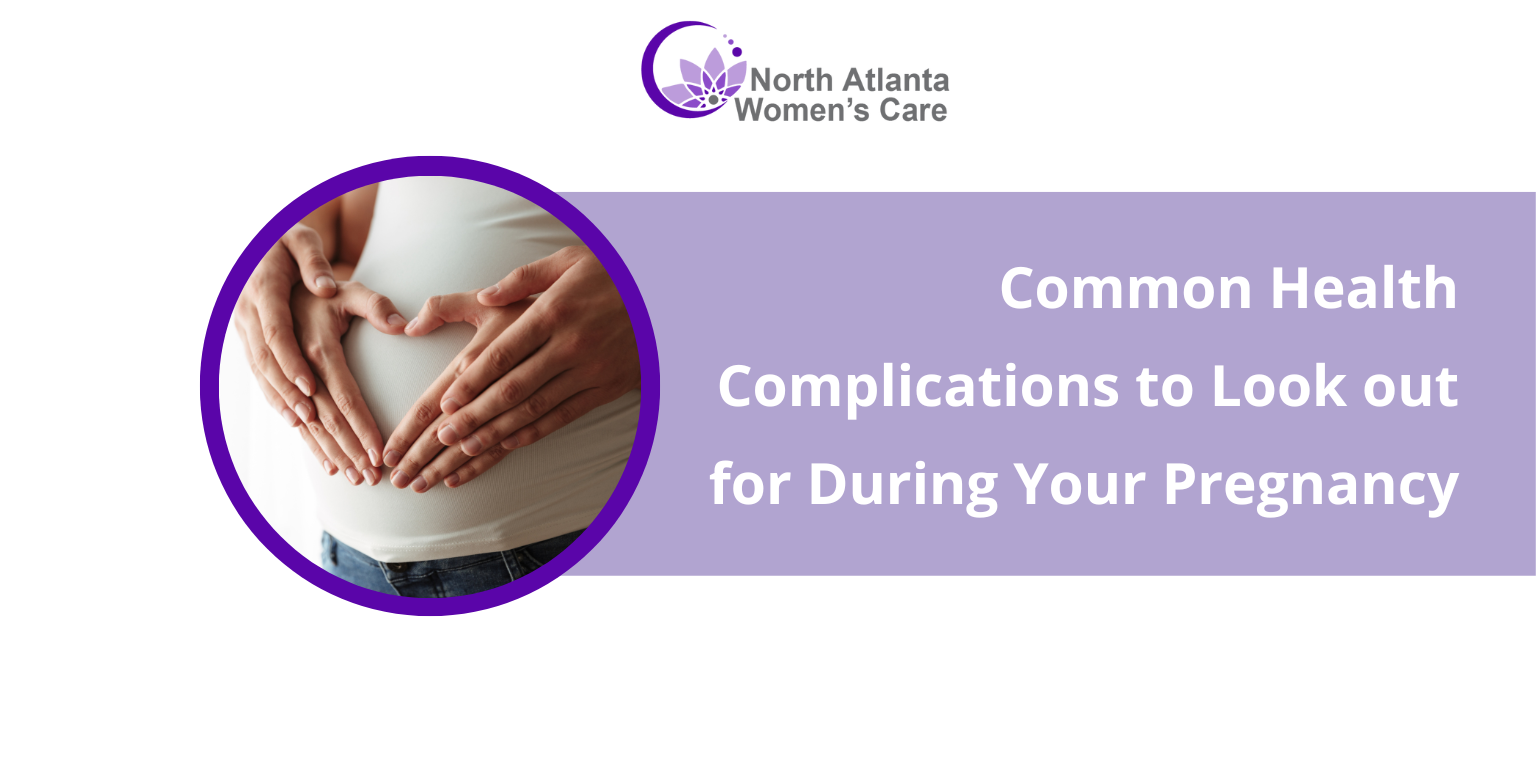Common Health Complications to Look out for During Your Pregnancy

Being a mother is one of the best moments in any woman's life. You are ready to welcome a new and adorable member in your family. However, with excitement and happiness comes changes. And we are not talking about changes in your life, but changes in your body. Your body will undergo a lot of changes during your pregnancy and during this time, you might experience certain health complications that can affect your pregnancy. This can include some weight gain, skin changes, hair growth, and mood swings. While these changes are normal, some women may experience a few gestational complications.
Let's take a look at some of the common health complications that you should look out for – if you are noticing any of these changes, make sure you speak with your doctor as soon as possible!
Don't Ignore These Health Complications and their symptoms.
Pregnant women in all trimesters are equally susceptible to a variety of health concerns. Some common pregnancy complications include:
1. Maternal Hypothyroidism
About 0.4% of all pregnancies are affected by thyroid disorders. Underlying hypothyroidism during pregnancy can lead to fetal development issues. Iodine deficiency leads to maternal hypothyroidism. The condition prevents the mother's body from generating iodine reserves, causing complications in pregnancy.
Common Symptoms
- Fatigue
- Increased heart rate
- Intense hair fall
- localized muscular cramps
- Constipation
- Changes in voice tone
- Skin damage
Maternal and fetal complications associated with maternal hypothyroidism include:
- Pre-eclampsia: results in high blood pressure and protein in the urine, causing water retention and swelling of the legs
- Placental Abruption: pre-delivery detachment of the placenta from the uterine wall
- Polyhydramnios: accumulation of excess amniotic fluid in the womb
- Low birth weight and premature delivery
- Gestational Hypertension: causes high blood pressure during pregnancy
Who is at Risk?
Most people with Grave's disease (an immune system disorder that causes excessive thyroid hormone production), Hashimoto's Disease (a condition where the immune system attacks the thyroid gland), and thyroid issues are most likely to contract maternal hypothyroidism.
2. Hemorrhage
Gestational hemorrhage occurs when blood collects between the gestational membranes and the uterus during pregnancy. The National Center for Biotechnology Information (NCBI) reports that around 16 to 25% of pregnant women experience vaginal bleeding during the first few weeks. About 11% of cases of this type occur in the 10 to 20 weeks of pregnancy.
During pregnancy, many women experience light spotting or bleeding from their vaginas. However, a ruptured vein is a critical and unusual complication with a high mortality rate during pregnancy.
Common Symptoms
- Severe pain in the lower abdomen
- Spotting or light bleeding from the initial stage of pregnancy.
- Fatigue and loss of appetite
- Pain in the lower back.
Maternal and Fetal Complications
- Intense blood loss that could be fatal
- Preeclampsia.
- High chances of miscarriage
- Stillbirth
- Premature delivery
Who is at Risk?
Hemorrhage is a common pregnancy complication in mothers with PCOS/PCOD conditions. Ectopic pregnancy (implantation of the fertilized egg in the fallopian tube) causes bleeding and miscarriage. Expecting mothers with pre-hypertension conditions are also at risk.
3. Diabetes Mellitus
Gestational diabetes develops when the body's insulin doesn't work properly. Production of other hormones during pregnancy makes insulin less effective. Symptoms of Diabetes Mellitus typically disappear after delivery.
Common Symptoms
- Abnormal weight gain
- Frequent urination
- Fatigue
Maternal and Fetal Complications
- Increased birth weight
- More chances of C-section delivery
- Infants born are prone to serious birth injuries
Who is at Risk?
Mothers who are prediabetic are prone to develop Gestational Diabetes Mellitus. Race, age, weight, and family history can also increase one's possibility of contracting GDM.
4. Gestational Hypertension
Gestational Hypertension is a condition that affects a woman's blood vessels during pregnancy. It differs from chronic hypertension, which occurs when a woman has high blood pressure before conceiving. Eclampsia (high blood pressure and protein in the urine) is another cause of Gestational Hypertension.
Common Symptoms
- Abnormal weight gain
- Persistent headaches
- Swelling
- vomiting
Maternal and Fetal Complications
- Placental abruption
- Improper fetal growth
- Fatal to both mother and fetus
- Stillbirth
Who is at Risk?
Pre-existing hypertension conditions can evoke gestational hypertension. Age and other medical issues of the mother are also contributing factors.
Follow these Tips to Make Sure that You Have Healthy Pregnancy
- Always Maintain a healthy routine
- Eat diet recommended by your OBGYN
- Avoid harmful activities like smoking or even avoid places of smoking
- Consult your OBGYn to educate yourself about the changes in your body and possible complications
- When in doubt, consult your OBGYN
- Always do exercise or Yoga as per your OBGYN instructions
- Keep track of your premedical conditions
- Avoid stress or activities that causes stress
An active body and a lively mind are critical to a happy and healthy pregnancy. Self-care with expert advice will help you enjoy these memorable days with delight.
How Can We Help You at North Atlanta Women's Care?
At North Atlanta Women's Care, we specialize in providing comprehensive obstetrics and gynecology services in Suwanee, GA, and Greater Atlanta. Contact us today to schedule an appointment.
Comments are closed

